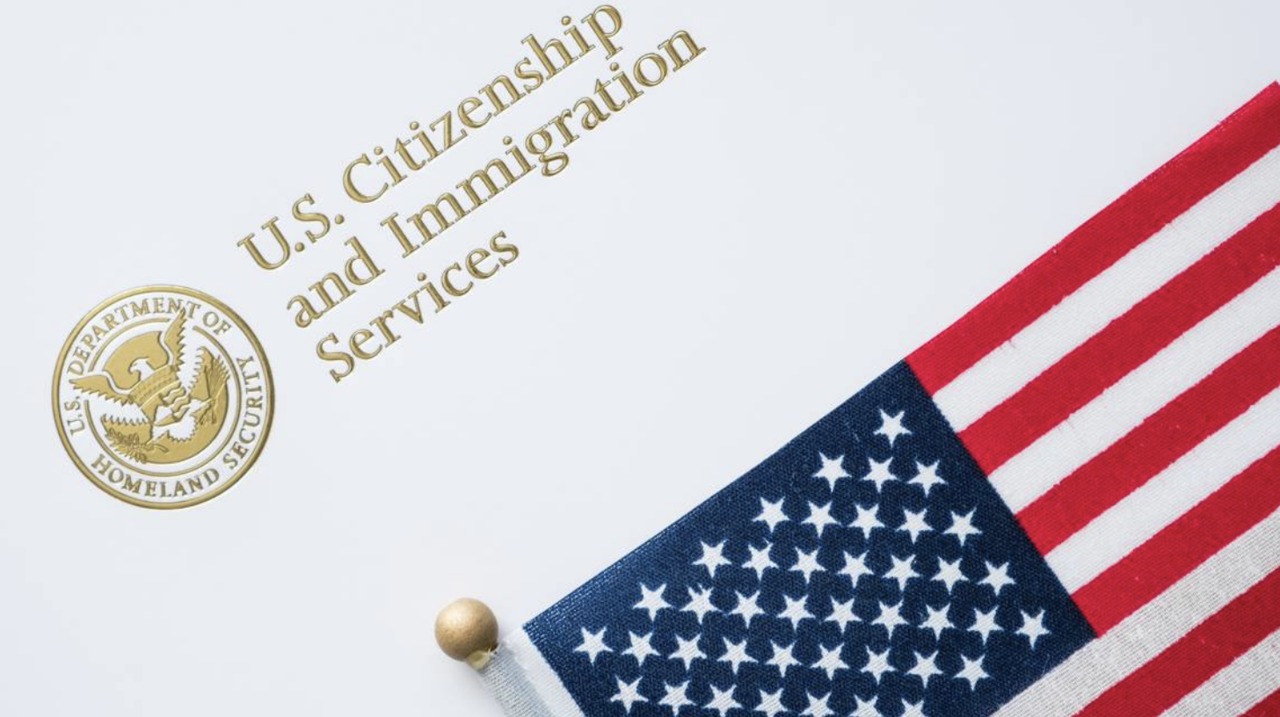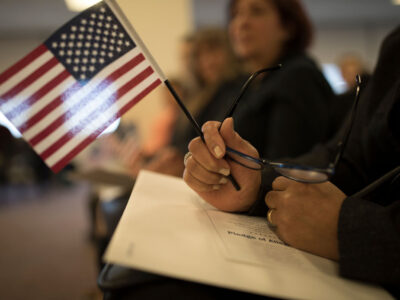The Trump administration has been consistent in its efforts to crack down on immigration. So when U.S. Citizenship and Immigration Services (USCIS) announced late last month that it was changing its policy toward children born abroad to U.S. citizen parents, many immigration advocates assumed the worst. Headlines declared that children born overseas to U.S. military service member parents would no longer automatically receive U.S. citizenship.
Soon, the USCIS and the Department of Homeland Security issued a new statement to attempt to calm the public and explain what the policy change really means. But the confusion remains.
What Changed in USCIS Policy for Children Born Abroad?
According to some analysts, the new policy, which goes into effect in October, represents a change to the residency requirements for children to gain U.S. citizenship as the children of U.S. citizens. They say it will not revoke anyone’s citizenship. Still, it will make adoptions more complicated for some U.S. service member families and citizens who do not reside in the United States.
This revision narrows the definition of “residence” under the Immigration and Nationality Act (INA), particularly as interpreted in Sections 320 and 322, which govern how children, biological and adopted, can acquire or derive U.S. citizenship. Before the change, many parents could rely on their service abroad or government employment to count toward residence in the U.S. for transmission of citizenship. Under the new interpretation, physical presence within the United States becomes more strictly enforced, particularly for parents who do not live in the U.S. full-time.
Additionally, this shift affects the eligibility for certain expedited processes for children living abroad, especially those who were adopted or whose parents naturalized after their birth.
Who Is Affected by the USCIS Rule Change?
According to Military.com, the policy change affects several categories of individuals. These include U.S. citizens who do not meet the physical residence requirement to transmit U.S. citizenship to their children at birth; children born abroad to parents who became citizens after the child’s birth; foreign children adopted by U.S. citizens; and children living abroad with U.S. citizen parents who did not acquire citizenship at birth and who now must seek it through naturalization rather than automatic acquisition.
Military families, who have long been granted exceptions under immigration law due to the nature of their service, are now facing a more complex legal situation. Though INA Sections 328 and 329 provide specific exceptions for children of military service members, particularly relating to naturalization, these exceptions no longer guarantee automatic transmission of citizenship.
In practice, this means that even children born to active-duty military personnel stationed abroad may face new procedural hurdles, including the need to apply for citizenship through Form N-600K, rather than automatically receiving it through birthright or acquisition statutes.
Impact on Adopted Children and Expatriate Families
Foreign-born adopted children are among the most affected groups. Previously, many adoptive parents relied on automatic citizenship provisions upon finalization of the adoption. Under the current interpretation, if the adopted child was not residing in the United States in the physical and legal custody of a U.S. citizen parent, then the INA Section 320 path to citizenship may no longer be applicable. Instead, the family would need to initiate a Section 322 naturalization process, which requires parental application on the child’s behalf using Form N-600K.
For expatriate families, U.S. citizens who have chosen to live abroad for employment, academic, or personal reasons, this change presents additional complications. Suppose the child was born abroad, and the parents cannot demonstrate sufficient physical residence in the U.S. before the birth. In that case, citizenship transmission may be denied without further steps, such as consular interviews or the pursuit of naturalization through embassy channels.
Clarifying Common Misunderstandings About the Rule
Despite public concern, the policy does not retroactively strip citizenship from anyone. Children who have already acquired U.S. citizenship, either by statute or certificate, will remain citizens. The change is prospective, affecting children born or adopted after the policy’s effective date, particularly those whose parents fail to meet the now stricter residency or presence criteria.
However, many families are still left with questions. For example, parents of children born abroad may still assume that military service, overseas contracts with the federal government, or missionary work qualifies as U.S. residence. Under the new policy, that assumption can lead to delays, denials, or additional filings.
What Is the Difference Between INA Section 320 and Section 322?
Understanding the distinction between these two legal frameworks is essential.
- Section 320 of the INA governs the automatic acquisition of citizenship for children residing in the United States who are in the legal and physical custody of at least one U.S. citizen parent. This generally applies to children adopted or born abroad but living within the U.S. with their U.S. citizen parent.
- Section 322, however, is reserved for children residing outside the United States. In such cases, the parent must apply for naturalization on the child’s behalf using Form N-600K. This process often involves a consular interview and appearance before a USCIS officer. It does not happen automatically and depends on fulfilling other criteria, including parental physical presence or military service.
For many military or diplomatic families, Section 322 is now the only viable path to citizenship for their children, adding time, legal complexity, and cost to the process.
Why CRBA and N-600K Matter More Than Ever
For biological children born abroad to U.S. citizens who meet the residence requirement, a Consular Report of Birth Abroad (CRBA) issued by a U.S. embassy remains the simplest path to prove citizenship. It is important to note, however, that CRBA eligibility depends on the parent meeting physical presence or residence requirements at the time of the child’s birth.
If the child does not qualify for a CRBA, the alternative is filing Form N-600K for naturalization under Section 322. This form allows U.S. citizens to apply for citizenship for children under 18 who reside abroad and who are temporarily in the U.S. for interview purposes.
The distinction between these two options is now more significant than ever, and failure to pursue the correct pathway may result in the child not being recognized as a U.S. citizen.
Legal Steps and the Importance of Counsel
With so many immigration policy changes occurring these days, it is a good idea for immigrants, parents of foreign-born children, employers who hire foreign workers, and others to speak to an immigration attorney.
An experienced attorney can determine whether your child is eligible for automatic citizenship acquisition or if the family needs to pursue naturalization through USCIS. This includes:
- Determining whether Form N-600 or N-600K is appropriate
- Advising on how to obtain a CRBA from the U.S. Department of State
- Navigating consular appointments and USCIS interviews
- Clarifying the timeline and filing fees associated with naturalization
These distinctions may seem technical, but they carry life-altering implications for your child’s legal status, travel eligibility, and future rights as a U.S. citizen.
Frequently Asked Questions (FAQs)
Does this policy remove citizenship from any existing U.S. citizens?
No. This policy change does not revoke or remove citizenship from any individuals who already hold U.S. citizenship. It applies only to future cases involving children born or adopted abroad and aims to change how eligibility is evaluated—not to alter existing citizenship.
What is the difference between the acquisition and derivation of citizenship?
Acquisition refers to obtaining citizenship at birth, typically through U.S. citizen parents who meet certain conditions. Derivation occurs after birth, often through a parent’s naturalization or other qualifying changes in legal status.
What is the Consular Report of Birth Abroad (CRBA), and how do I get one?
The CRBA is a document issued by a U.S. embassy or consulate that confirms the U.S. citizenship of a child born abroad to U.S. citizen parents. To obtain it, parents must provide evidence of their citizenship and satisfy applicable residency requirements. CRBA is not automatic—it must be applied for and granted.
What is Form N-600K, and when should it be used?
Form N-600K is used to apply for citizenship under INA Section 322 for a child who resides outside the United States. It requires proof of the parents’ citizenship and, in many cases, a short-term visit to the U.S. for the naturalization interview.
Are military and diplomatic families treated differently?
Yes, in some circumstances. Sections 328 and 329 of the INA provide for naturalization exceptions for children of military service members, but those provisions may not override the residency requirement for automatic transmission of citizenship. It is still advisable to consult a qualified attorney to confirm eligibility.
What happens if my adopted child doesn’t meet the new criteria?
You may still pursue naturalization for your child through Form N-600K, but it will require more documentation, interviews, and time. In some cases, a child who would previously have acquired citizenship automatically may now need to undergo formal legal procedures to obtain citizenship.
Navigating complex citizenship laws, especially when children are born or adopted abroad, can be overwhelming and time-sensitive. The recent USCIS policy changes have introduced additional legal complexity, and misunderstanding your options could put your child’s legal future at risk.
At Hussain & Gutierrez, we provide strategic, personalized immigration guidance to ensure your child’s path to citizenship is secure and clearly understood. Whether you are a military family stationed overseas, a parent adopting internationally, or a U.S. citizen living abroad, our experienced legal team can help you:
- Assess eligibility for automatic or derivative citizenship
- Apply for CRBA, N-600, or N-600K
- Prepare for consular interviews or naturalization hearings
- Avoid costly mistakes and delays in the application process
Your child’s future deserves clarity and protection.
Visit Hussain & Gutierrez to schedule a confidential consultation with an experienced immigration attorney today.


